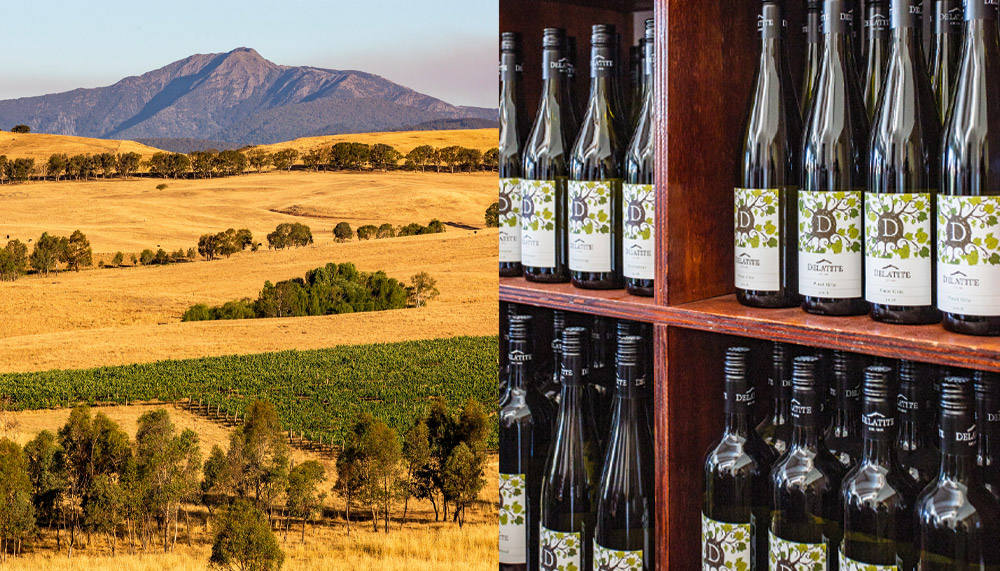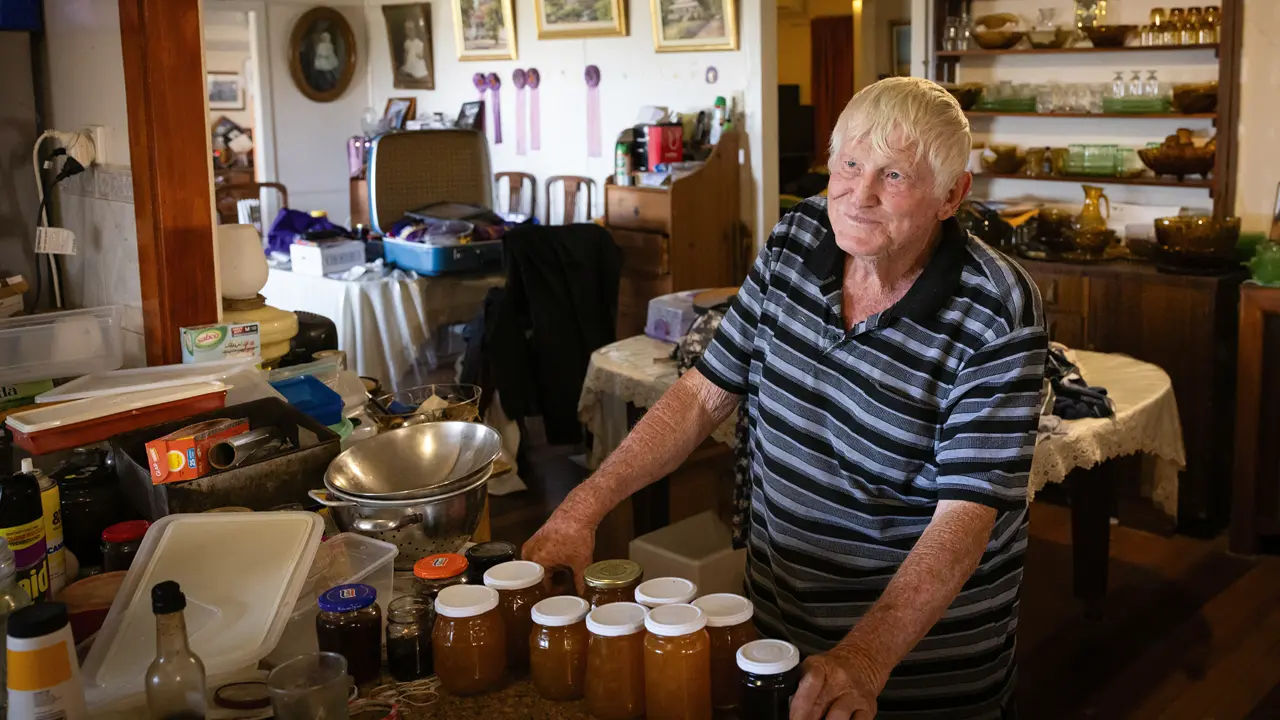Founded on Delatite station in 1968, Delatite Winery was one of Australia’s first cool-climate vineyards.
Story Ged Bulmer Photos Bill Bachman
One minute vigneron David Ritchie is serving cheese platters and wine at the cellar door of Delatite Winery, near Mansfield in north-eastern Victoria. The next minute the 30-plus-year veteran of his local Country Fire Authority is called to attend a fire and is racing away on a truck. Australia’s recent bushfire-ravaged summer reminds David of a disastrous summer in 2006–07, when the bush around his vineyard was alight for 60 days and nights, ruining the grape crop. “A couple of weeks, or even a week of thick smoke at the wrong time can really affect the flavour,” David says. “Whenever we see weather like this, it brings back memories for me of what a disastrous vintage that was.”
The Delatite vineyard meanders across the foothills of the Victorian Alps about 10 minutes east of Mansfield, offering panoramic views of nearby Mt Buller. It lies on land once belonging to Delatite station, a large holding of around 7300ha originally purchased by David’s great-grandfather, Geoffrey Ritchie, who came from Victoria’s Western District in the 1890s. It was David’s parents, Robert and Vivienne Ritchie, who set the property on its vinicultural course, establishing one of Australia’s first cold-climate vineyards on their prime grazing country in 1968. By 1982 the family had their own winemaking facilities and cellar door, with daughter Ros as Delatite’s first winemaker and David as her assistant. When Ros established her own label in 2005, David took the reins and now runs the vineyard in partnership with the English Vestey family, well known for their former Top End cattle holdings.
Both David and Delatite’s chief winemaker Andy Browning, of Madfish Bay fame, share a passion for producing outstanding wines using sustainable vineyard practices and biodynamic farming principles. “Until recently we used herbicides about once every three or four years, but haven’t used any at all recently, and don’t intend to,” David says. “In my experience, the less you spray with chemicals, the less you need to spray. And that’s been borne out during the past 15 years. But it’s not a neat vineyard. It’s full of grasses and broad-leaf plants and a whole host of plants in the vine row that aren’t grapevines.”
This story excerpt is from Issue #130
Outback Magazine: Apr/May 2020










